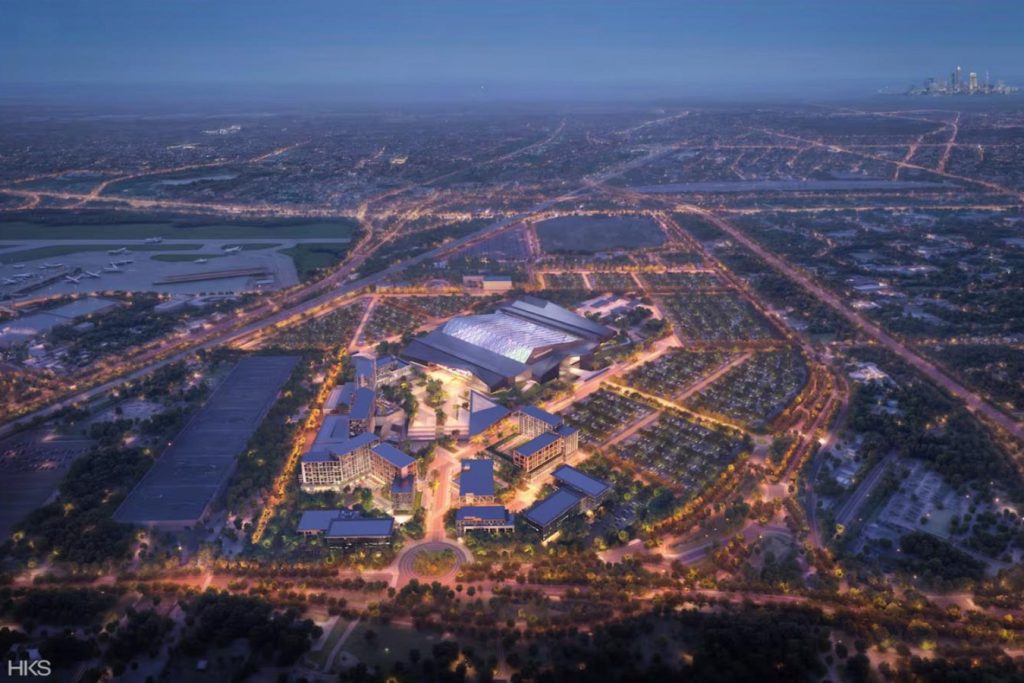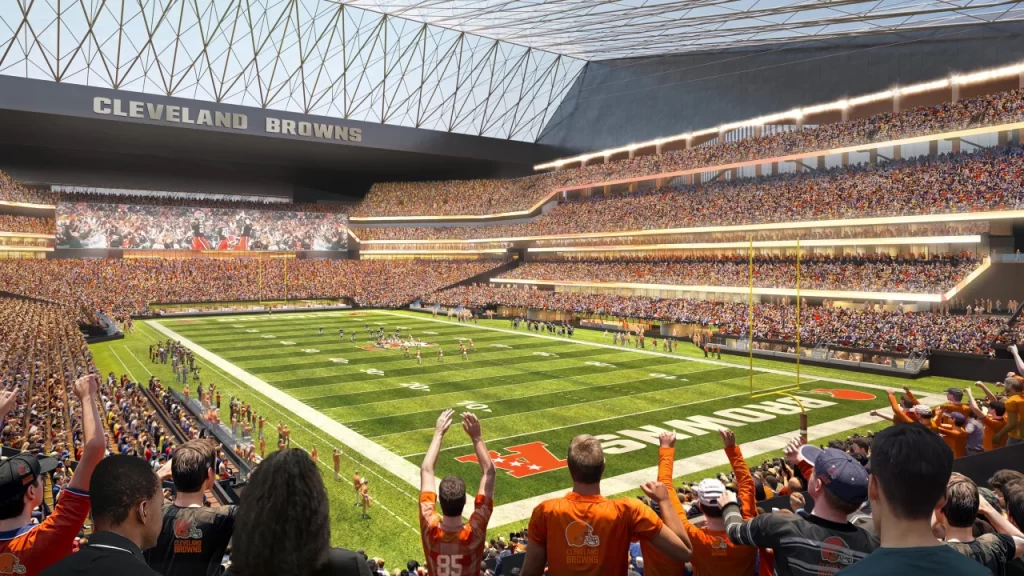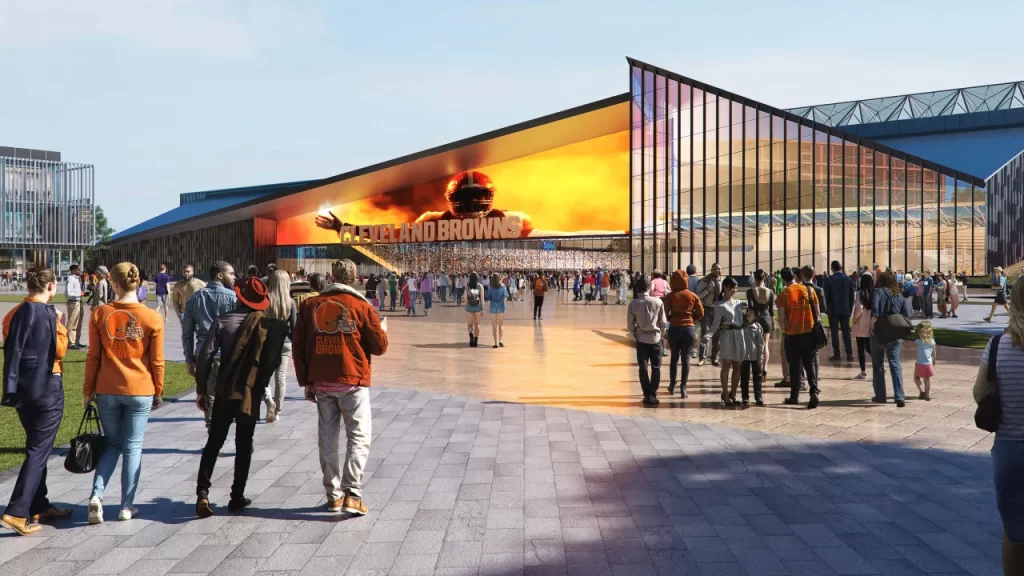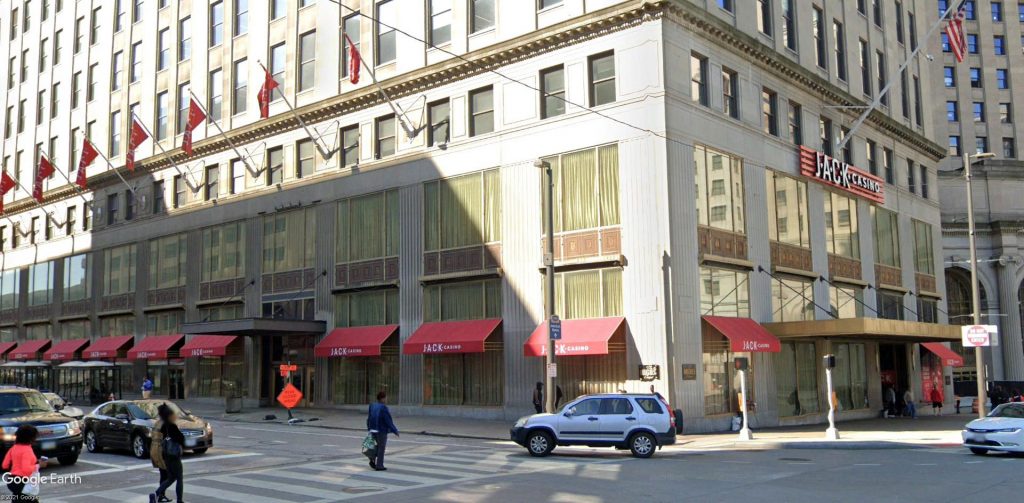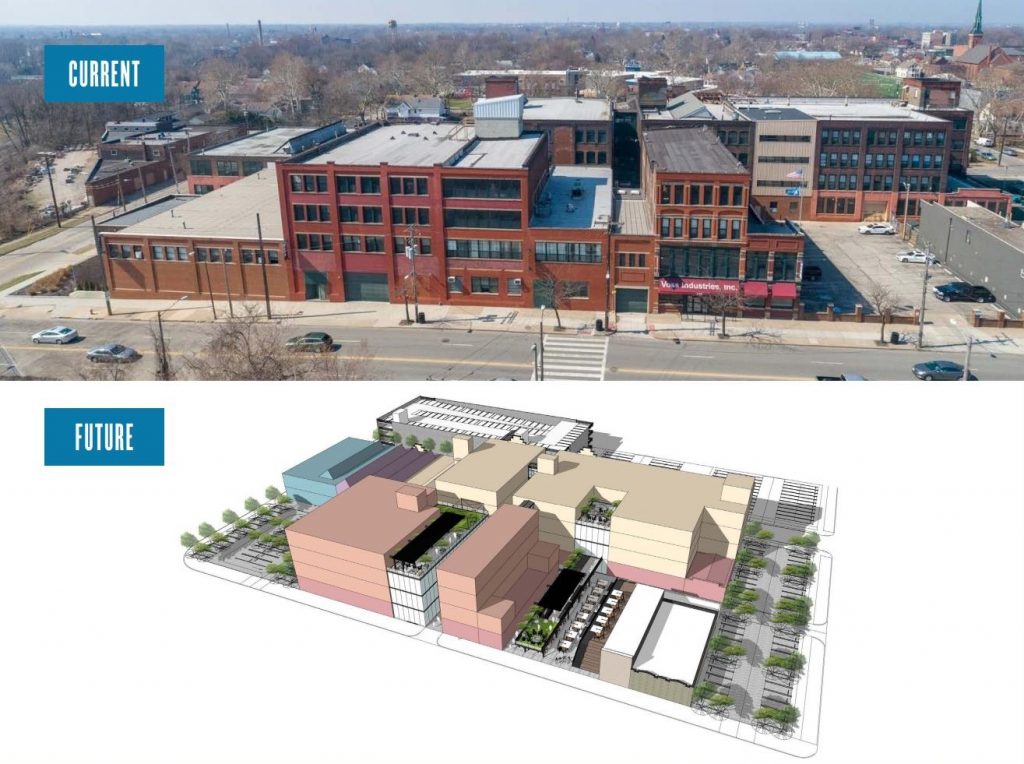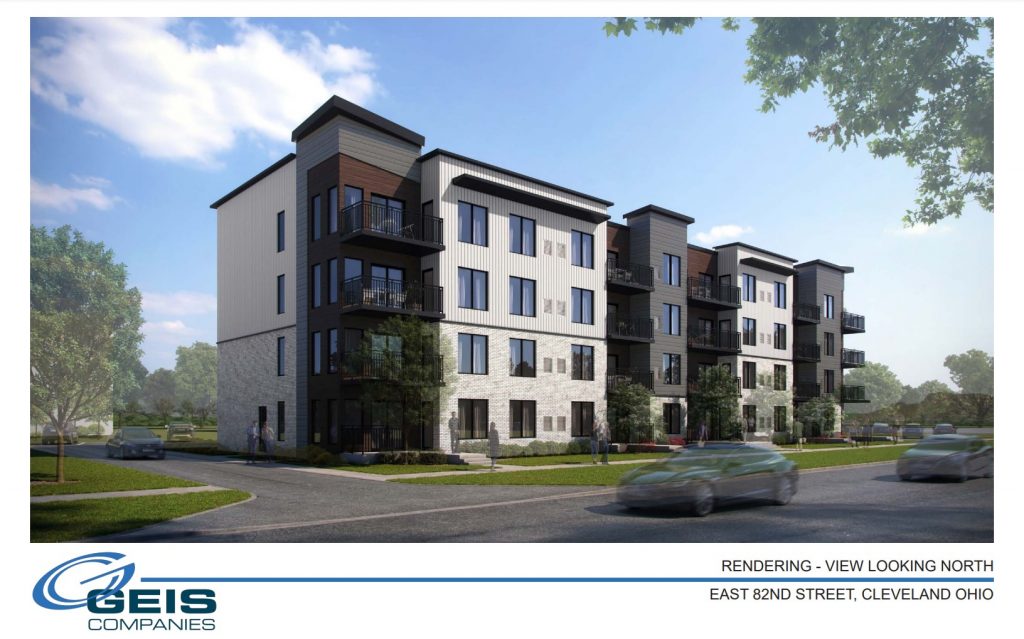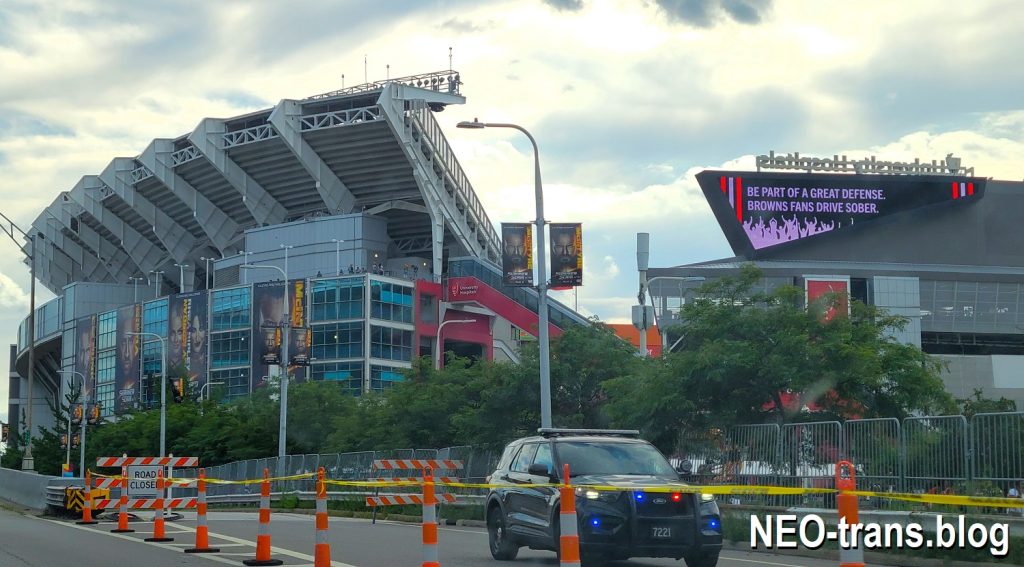
City-owned Cleveland Browns Stadium has been the venue for the National Football League team’s home games since 1999. And after the team’s lease expires following the 2028 football season, city and now Cuyahoga County officials want the team to play there for another 30 years following a $1 billion renovation (Iryna Tkachenko). CLICK IMAGES TO ENLARGE THEM.
Letter says Brook Park stadium plan is financially ‘risky’

ARTICLE UPDATED AUGUST 11, 2024
Two Cuyahoga County leaders sent a letter today to Cleveland Browns owners Jimmy and Dee Haslam urging the football team to keep playing at the stadium on the Downtown Cleveland lakefront rather than build a new domed stadium in suburban Brook Park. County Executive Chris Ronayne and Cuyahoga County Council President Pernel Jones Jr. said the Haslams’ Brook Park plan “does not make fiscal sense.”
A press briefing by Ronayne, Jones and possibly others is scheduled for 1 p.m. tomorrow at the Hilton Hotel in Downtown Cleveland, Ronayne told NEOtrans. There, more information will provided to clarify the county’s stance, he said.
The letter throws cold water on the Haslams’ vision released only four days ago. The reason is because it is likely that some county funding, or at least a county-approved funding mechanism, be provided to help finance construction of a proposed $2.4 billion domed stadium in Brook Park. The Haslams have pledged that the new stadium be a 50/50 public/private financial partnership.
“Today we are writing to affirm our united commitment to keep the Browns in Downtown Cleveland for generations to come,” Ronayne and Jones said in the joint letter to the Haslams.
“The proposal to build a new stadium in Brook Park does not make fiscal sense for Cuyahoga County residents and taxpayers,” Ronayne and Jones added. “Moreover, any proposal that would create an unacceptable risk to the county’s general fund cannot be considered. We believe it is our responsibility and in the best interests of our community to prioritize reinvestment in public assets.”
“A stadium project that could be a transformational opportunity for this region will take deep thought, objectivity, innovation and patience,” the Haslams said in a written response. “The process of renovating or building a new stadium is incredibly complex. We have been reminded many times that the issues with the current stadium resulted from a rushed process that was not thorough and don’t want that repeated. We have received the county’s response and are still in the process of gathering information and doing due diligence on both paths.”
“It would be short-sighted for Northeast Ohio to rule out any options at this point for a long-term decision of this magnitude,” the Haslams’ response continued. “We look forward to the city of Cleveland’s responses to our questions regarding their proposal from last week and we remain committed to collaborating and communicating with all parties involved. Working together and keeping an open mind while thoroughly vitting this project is critical to achieving the goal of finding and executing the best long-term sustainable stadium solution for this region.”
“Importantly, we are not looking to tap into existing taxpayer-funded streams, which could divert resources from other pressing needs,” said Dave Jenkins, chief operating officer of the Haslam Sports Group and Cleveland Browns, in a letter to the team’s fans that was publicized last week.
“We are instead working on innovative funding mechanisms with local, county, and state officials that would leverage the fiscal impact of the project and the unprecedented private contribution to support the public investment and generate a substantial return for Brook Park, Cuyahoga County, and the state of Ohio,” Jenkins added.
Earlier this month, Cleveland Mayor Justin Bibb publicly released details of the city’s $461 million share to fund a $1 billion renovation of the 1999-built Cleveland Browns Stadium on the downtown lakefront. That was intended to keep the Browns downtown at the conclusion of their 30-year lease which ends after the 2028 National Football League season.
“Losing the Browns would harm Cleveland and all Clevelanders,” Bibb said in written press statement. “Lower spending downtown would negatively affect tax revenues that provide essential services for a city in need. It would close businesses, cost jobs, empty out storefronts, and make our downtown feel less alive.”
Some insiders have said the stadium is decaying rapidly and may not last through a new 30-year lease to the Browns. The Haslams conducted an assessment of the stadium when it developed optional plans for renovating the stadium. But the assessment has not been publicly released by the Haslams or the city. The assessment said $400 million worth of basic structural repairs were needed just to keep the facility open.
That report was in addition to Osborne Engineering conducting a routine facility audit on the stadium in October 2023. The audit is required every five years by the Browns and the city as part of the team’s current lease. It said the stadium’s building systems will need $117 million in capital repairs over the next 10 years. A $3.5 million emergency repair request is currently pending before City Council two years after $10 million in repairs were made.
“While significant work remains, the more we have explored the Brook Park option, the more attractive it has become, and we are excited to share the current vision with you,” Jenkins said in releasing conceptual plans including a video presentation of the stadium and $1.2 billion in proposed, surrounding development.
But Ronayne and Jones cited the billions of dollars of investment into Downtown Cleveland in recent years and said it is their belief that “a strong, vibrant downtown core is critical to our region.” They said that if county, city and the Haslams work together, they can expand on the many public investments that have already been made.
Ronayne and Jones specified the construction of and renovations to Progressive Field and Rocket Mortgage FieldHouse, plus the county-funded Hilton Hotel and the Huntington Convention Center, and private investments including the new Sherwin-Williams headquarters, Rock and Roll Hall of Fame expansion and the Flats East Bank.
“A renovation of the downtown stadium will build on those investments and anchor future investments on the lakefront,” today’s letter continued. “We acknowledge this transformational investment is about more than just dollars and cents. The stadium is more than just a venue. The team represents the heart and soul of Northeast Ohio and reinforces our community’s identity and pride. Browns fans have a deep-rooted emotional connection to the team’s rich history in Downtown Cleveland.”
In an interview 10 days ago, Ronayne told NEOtrans that the discussion involving where the Browns play could have impacts on Cleveland’s other top pro teams — the Major League Baseball Guardians and the National Basketball Association Cavs.
“The Browns are part of a broader discussion involving all three major (Cleveland) sports teams — the Guardians, Cavs and the Browns,” Ronayne said. “And our goal is to effectuate a strong public-private partnership that’s fair to the citizens of Cuyahoga County and fosters a long-term relationship of all three teams. Our focus now and into the future will be in assuring that long-term relationship.”
Creating a year-round venue outside of downtown that could host other athletic and entertainment events could also end up competing with the Rocket Mortgage FieldHouse arena and Progressive Field ballpark. As noted earlier, the county has invested in both facilities. And at the end of the Cavs’ and Guardians’ leases in 2034 and 2036, respectively (both of which have lease extension options for up to another 10 years), each team may want new facilities if the Browns get a new stadium.
The county is also facing a financial challenges at the MetroHealth System where CEO Airica Steed was fired last week — the second CEO to be fired from the county-owned health care provider since 2022. The health system may need county help to cover construction bonds for more than $1 billion in new hospital facilities. Meanwhile the county has yet to decide where its future $400 million to $700 million Consolidated Courthouse will be located.
END

